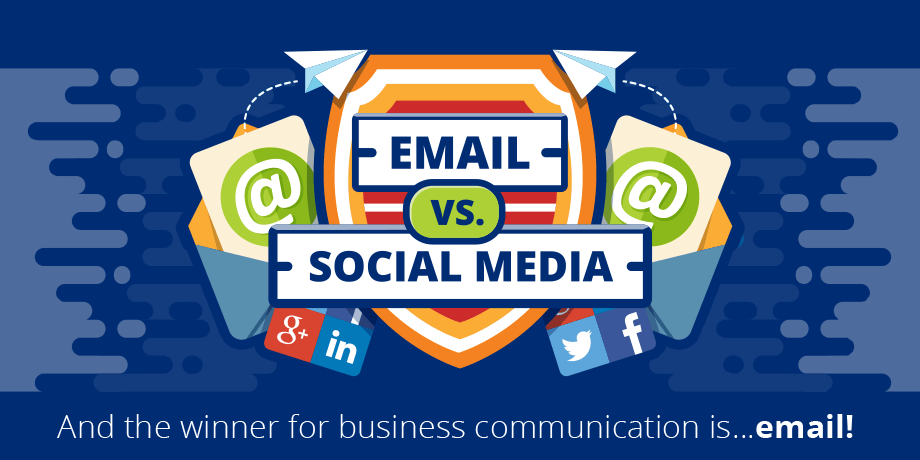
I have been in a couple of meetings recently where the pushback and objections are that email is dying and is being replaced by social media and messenger apps. Frankly I believe this is grossly over-exaggerated. There is rumour that the youth are spending more time on social media and less on email, but I think the real point missing here is that the email channel is a business communication tool and when the youth grow out of Snapchat and WeChat – they too will use email!
Email is an important business tool
Research shows that 61% of American workers view email as “very important” for doing their job, and that hasn’t changed in 13 years. What is changing is that all the conversational noise, broadcasting of opinions, sharing of jokes, setting up “after work” drinks and social clutter has moved onto other platforms, leaving email to do what it does best – marketing and operational communications from a business to its customers.
Five years ago there was a lot of talk about how to manage your inbox – how to cut through the clutter and the ‘millions’ of emails. A combination of smart tools like Inbox by Gmail, Type Mail or Blue Mail; better spam filtering, more relevant and targeted email and the reduction of chit-chat is helping email rise up to be the serious business channel it should be.
Reasons why email is THE digital channel for business:
- Fit for purpose
Email may not be as sexy as social media or snapchat or even instant messaging, but it is getting better and better for business communication as the clutter moves away. We are not talking about B2C advertising as such – we’re talking about targeted marketing, lifecycle communications and customer touch points, such as billing and notifications. Interaction goes to social. Information stays with email. - Stability and familiarity
While new social platforms rise in popularity, some close down (remember MySpace, Gogga, Meep, Zoopy … me neither!) and old ones change, email remains stable. Everyone has it. The functionality is solid. Tracking is great. ROI is inevitable. - Email address is essential
The irony is that you actually need an email address to sign up for most social media accounts. Whether it’s a company or private email address, you need one. This increases the channel’s accessibility for relevant communications. - Social messaging
Person to person dialogue works great on the messaging platform of your choice. Group collaboration too. But once the dialogue and collaboration is finished, email is the medium used to record the action points as a form of reference for you and the broader team. - Record keeping
Business communication is often governed by laws that require records to be kept of marketing offers, operational notifications and even conversations. Email is governed by record keeping legislation too. This is a match made in heaven. - Reporting
Marketers need information to understand their customers better, track behavior, keep improving offers, so that they can improve things like timing and relevance of the communications. Email is a great tool to provide this data.
This is not to say that social media or chat applications won’t be as smart as email is for business communications at some point, but there is a lot still to be done before that happens. Some of the required functionality might meet with user pushback – like adding broadcast capability on WhatsApp.
So, instead of saying email is dying and social media is the future for communications – let’s drink a toast to email as it emerges from the first 40 years a smarter, more functional, stable, user friendly and reliable medium for businesses to communicate with their customers.















